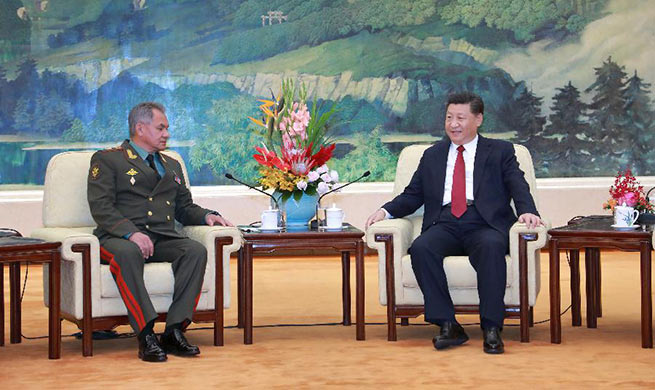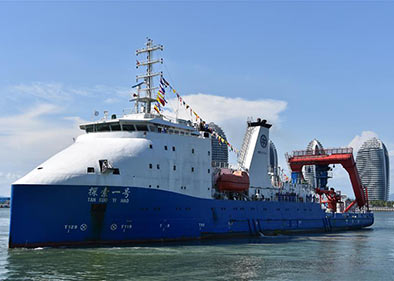BEIJING, Oct. 19 (Xinhua) -- A recent comment from U.S. Vice President Mike Pence on the Taiwan issue, part of an aggressive speech against China, was illogical and absurd, and sent the wrong signal to separatists in Taiwan.
In a speech on Oct. 4, Pence accused China of threatening the stability of the Strait by establishing diplomatic relations with three Latin American countries.
His comment was an attempt to cause trouble concerning China's core interest, raising reasonable doubt about the intentions of the United States.
It was based on the one-China principle that Chinese and U.S. leaders managed to normalize bilateral relations in the 1970s. In the following decades, the one-China principle has become a common understanding of the international community.
However, today when other countries establish diplomatic ties with China based on the one-China principle, Washington throws around accusations instead, a typical example of applying double standards and playing power politics.
Latin American countries, taking account of their own long-term interests and people's welfare, decided to develop normal and stable bilateral relations with China, complying with the mainstream of the international community.
The Latin American countries and China made the decisions independently based on their own interests. The United States has no rights to point fingers and meddle in other countries' domestic affairs.
Since 2016, the achievements of peaceful development of cross-Strait relations have been challenged by the current Taiwan authority who refuses to acknowledge the 1992 Consensus. But the Chinese mainland has not given up the efforts to promote cross-Strait exchanges and advance the welfare of Taiwan compatriots.
Preferential policies, including one that allows Taiwan residents to apply for resident permits on the mainland, have facilitated their work, study and life on the mainland and allowed them to share the benefits of the mainland's economic development.
Inspired by the vision of a community with a shared future for the two sides of the Strait, people on both sides have carried on economic and social integration and exchanges, with more and more young people coming to the mainland for personal and career development, despite the chill political atmosphere.
The United States has chosen to ignore all these facts and brought up groundless and unwarranted accusations against the mainland.
Since it took power, Taiwan's DPP administration has wantonly overthrown the political foundation of cross-Strait relations, supported and connived at attempts for "Taiwan independence," sharply restricted and reduced cross-Strait exchanges, as well as threatened and obstructed Taiwan residents from coming to the mainland.
It has also sought foreign intervention in cross-Strait affairs and repeatedly trumpeted "Taiwan independence" in the international community.
The DPP's acts have undermined the achievements in the peaceful development of cross-Strait relations.
Fraught with the "two Chinas" separatist fallacy and confrontational thinking, the recent speech by Taiwan's leader exposed the evil intention to contain the mainland in collaboration with anti-China forces in the West.
The DPP's behaviors, long indulged by Washington, are the biggest threat to cross-Strait peace and stability. Pence's bald-faced challenge to the one-China principle sent another wrong signal to the DPP.
The Taiwan issue bears on China's sovereignty and territorial integrity, and remains the most important and sensitive issue in China-U.S. relations.
The U.S. side should have abided by the one-China principle and the three China-U.S. joint communiques, prudently and properly handled Taiwan-related issues, and worked with China in opposing and restraining "Taiwan independence" forces, bearing in mind the larger picture of China-U.S. relations as well as maintaining peace and stability across the Strait.
Instead, since taking office, the current U.S. administration has constantly used Taiwan as a bargaining chip to contain China.
It intensified arms sales to Taiwan. The U.S. National Defense Authorization Act for the fiscal year 2019 even includes clauses to strengthen Taiwan's force readiness, and expand joint drills, arms sales and high-level military exchanges.
All the moves showed how the U.S. side has tried to manipulate the situation across the Strait and subjected the interests and wellbeing of Chinese people on both sides to its domestic politics. In essence, it shows a cold-war mentality, arrant egoism, and hegemony.
The world needs sound, steady, and sustainable China-U.S. relations. U.S. politicians should play a constructive role in this relations, instead of being a troublemaker for cross-Strait peace and stability.

















